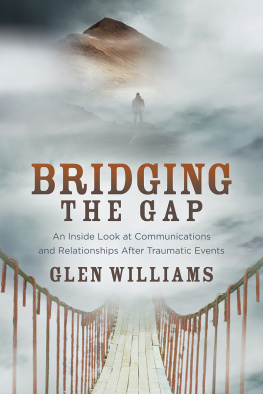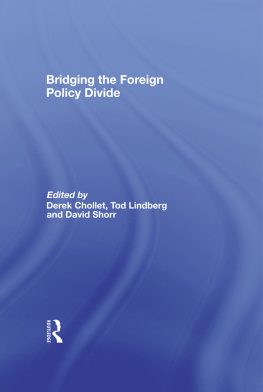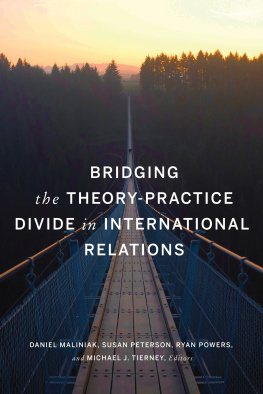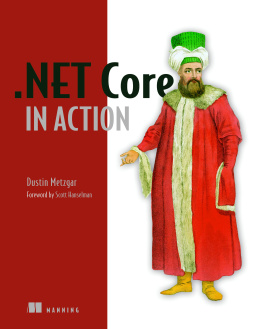Acknowledgments
I have many people to thank for helping me in a variety of different ways to complete this book. But first I want to thank working-class studies and all those who have created, nurtured, and sustained it as a field of study with very few rules and many different kinds of voicesnow encompassed in the Working-Class Studies Association. What they called new working-class studies was founded by John Russo and Sherry Lee Linkon in 1995 at Youngstown State University in Ohio and then added to institutionally by Michael Zweig at Stony Brook University in New York and Tim Strangleman at University of Kent in the United Kingdom. By collectively establishing a space where folks with extensive experience of working-class people, regardless of their own class background, could share their observations of and concerns about working-class life, working-class studies have allowed meand so many othersto say things and think things I could not say or think anywhere else.
Personally, working-class studies gave me a fresh start in a new century with a new set of friends, many of them much younger than me, who saw things I had thought I was the only one seeing (which, if that had been the case, I would likely have been hallucinating!). The working-class studies community has enriched my life in many different ways but none more than by being among people who could sensibly correct me when I was wrong. Within this community, Russo, Linkon, and Strangleman have been with me every step of the way for this book and Russo even before that, sharing their insights, energy, and activism inside academia and out. Others who have been especially good at correcting me but who have not read the book are Sarah Attfield, Michele Fazio, David Greene, Colby King, Christie Launius, Cherie Rankin, Steve Rosswurm, and Jeff Torlina. Barbara Jensen often spiritedly corrected me as well, but mostly I value her own work, including the book she allowed me to interfere with chapter by chapter, and the couple of decades of conversations that have shaped every aspect of my interpretations; she also read the entire book at a late stage, and besides a string of helpful criticisms and suggestions, she enthusiastically gave me the approval I needed.
I have been fortunate to have people who read every word of the book in one form or another. My graduate school buddy Bill Smoot, a novelist and short story writer, wordsmithed and copyedited every chapter, sometimes more than once, immensely improving clarity and prose with the gently mocking grace only a friend of fifty years could have. Two sociologists, Betsy Leondar-Wright and Jessi Streib, read each chapter as I wrote it including a few chapters they talked me out of using, making helpful corrections, providing leads to sources, and carefully assessing each and every one of my sweeping generalizations, some of which are less sweeping now and some of which are mercifully absent here. Jefferson Cowie and Jamie Daniel also read the entire book, and even though some of my views cut against some of their grains, they both skillfully kept their criticisms (and encouragement) within a sympathetic understanding of what I was trying to do. Finally, toward the end when I thought everything was perfect, Joshua Freeman and Sherry Linkon rendered their judgments in ways that were enthusiastic but also so critically insightful that I was able to improve the perfect! Josh and I have been trading manuscripts for decades, and he still finds ways to sharpen my thinking, while I have been running out of criticisms to help him. Sherry Linkon deserves mention across every front. From an upper-middle-class family, Sherry has been becoming working class-ish for decades now. One of the founders of working-class studies, she has nurtured numerous voices as a skillful organizer, an even more skillful editor of the Working-Class Perspectives blog, and with her own writing and scholarship as well as her oral contributions to so many different conversations in the field. I was blessed to have her extensive and careful commentary on nearly every page of the book.
Those who read pieces of the book, mostly in its early stages while it was still taking shape, are Paul Barnesley, Allison Hurst, John Russo, Tim Strangleman, and Venise Wagner. They were all both critically helpful and encouraging, sometimes in that working-class not-making-a-fuss kind of way. I also appreciate the pieces my son, Judd Metzgar, read for veracity, but I benefitted even more from his wise-guy skepticism of my entire project during hours of conversation over the past several years.
I owe Fran Benson, my editor at Cornell University Press, in ways beyond the careful way she has shepherded my book through the editorial process. She has been a quiet powerhouse in working-class studies, publishing founding texts: original anthologies by Russo and Linkon and by Michael Zweig, Zweigs Working-Class Majority, Barbara Jensens Reading Classes, Betsy Leondar-Wrights Missing Class, and the Class Lives collection as well as numerous others. These authors, all of whom are friends, are not giantsjust ordinary, good people and exemplary middle-class professionalsbut I stand on their shoulders nonetheless. Fran provided access to those shoulders for me and so many others.
And then theres Judie, the love of my life, who engaged in decades of dialogue with me about our class cultures, some of which she found uncomfortable and a lot of which she found tedious. She read the book in incoherent pieces, always with insight, and helped me put those pieces together. As in our life together, she seldom put her foot down in disagreement, but when she did I knew she was likely to be right. If youve ever known somebody like that, then you might have some idea what a blessing it has been to have lived more than half a century with Judie by my side.
Introduction
ACHIEVING MEDIOCRITY
I knew what was about to happen as Coach Shingler reamed out one player after another as we stood in line showing our first six-week report cards. Football players could NOT be dummies, he fumed. You might as well know that right now. And unless you could master English and math, you had no future on this team. I dropped my notebook so I would lose my place in line, trying to work my way to the back so there would be fewer players left to witness my embarrassment. But that didnt work, as lots of guys were coming late to practice, and before I knew it I was in front of Coach, painfully raising my report card above my head so he could see. He saw.
Coach grabbed the report card with one hand and gave me a big side-hug with his other arm as he called out to half a dozen players who had just gone through the report card gauntlet but had not yet reached the locker room. Arbitrarily singling out one player, as he often did, he shouted, Hey, Miller, you guys come back here. This may be the one time in your lives you see a report card like this, as he called everybody around to see that I had earned all As, even in English and math.
I liked Coach Shingler, then and ever after, because he really cared about all his guys and wanted to have a positive impact on each of our lives, even those of us who werent such good athletes. He wasnt like a regular teacher, as he was easier for us to relate to even when he scolded us or kidded us too roughly. But I wondered even then, as a twelve-year-old, how he could do this to me. Why not just slap me on the back and say Good job, Metzgar, as he had done with some others? Could he not know that he was branding me an outsider, not really one of the boys, as he attempted to shame others by exhibiting me, a third-string fullback with a tendency to fumble, as somebody to be emulated?








